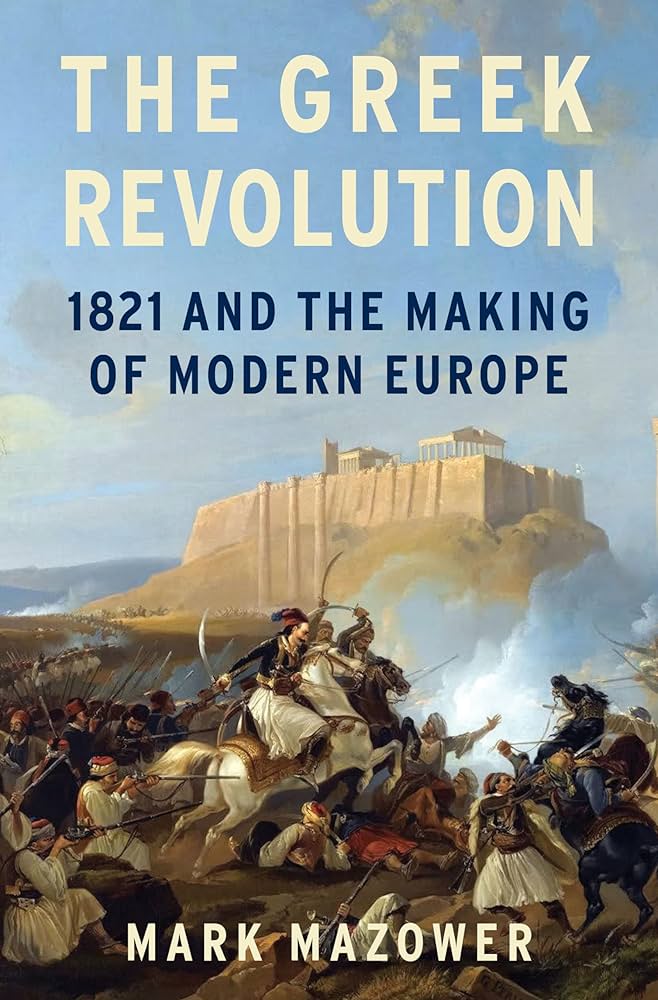Mazower's The Greek Revolution paints a very complete picture the birth of Modern Greece

The Greek Revolution: 1821 and the making of Modern Europe An epic history of the entire Greek Revolution Penguin Random House
Amid the blinding splendor of the ancient past, the ghosts of 1821 wander unseen.
Put shortly, Mark Mazower's The Greek Revolution is very good. The book is divided into 2 main acts, one before the interventions of Egypt and Europe, and one after. The book spends a lot of time at the beginning setting up the environment, the players, and giving a sense for how the pre-war Greece operated, which can drag, but is important for understanding why the haphazard organization of the provisional wartime governments was the way it was. I think this book is generally better for those who are somewhat familiar with the events of the Greek Revolution, which I decidedly was not.
The book is heavily centered around the events of the actual war, and the discussion of everything post-Navarino is largely in summary territory (it spans over 1 chapter, entitled "Love, Concord, Brotherhood", the Etairist slogan and apparent last words of Georgios Mavromichalis). Mazower often does not mask his opinion in the discussion, for example making it clear that he expects the Mavromichali were acting largely alone in their plot to assassinate Capodistrias, but this only occasionally prevents him from providing a two sided discussion of a topic (I felt this occured with the Ypsilantis, though I also am not sure how one can be very neutral regarding his leadership).
I appreciated how Mazower devoted significant time to the discussion of the affairs, plight, and attitude of the common peasant. One truly gets an impression from this book that the war of independence was not something conducted from on high by the Kapodistrioi, Mavrokordatoi, and the Kantakuzinoi of the Greek world, but an affair that relied heavily on "The inexhaustible Patience of the People". The condition of the ordinary people is discussed in a way that I found neither minimizing nor excessive (a balance which is difficult to strike! Pop-history tends to over-minimize, whereas more academic texts tend to be on the excessive end) and is deeply compelling
In sum, book good, read it.